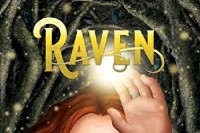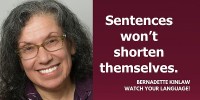
Paranormal and romance- a shared magic by Tracey Shearer, author of Raven
femalefirst.co.uk – Tuesday November 17, 2020

Two years ago, when my literary agent had to suddenly retire to take care of her ailing hubby, I prepared to pitch to new agents at a local writers’ conference. Before I could join the pitch session, an agent buddy pulled me aside and told me not to tell anyone my book was a Paranormal Romance. Call it anything else, but not that.
We stood in a quiet hallway at the conference while I tried to process what she’d just shared. Then she leaned in close and whispered, “Tracey, Paranormal Romance is dead.”
I couldn’t hold back my disbelief, mouth dropping open, eyes blinking, seeing nothing. Paranormal Romance dead? How could that be when I see bookshelves, both physical and virtual, filled with books in this genre? Readers are hungry for these stories.
The agent went on to share that the Big 5 publishers weren’t actively acquiring Paranormal Romance. They had too much already on their author roster. So agents were steering clear of anything with even a whiff of Paranormal Romance. It would be a hard “no.”
I believed my friend, I truly did. But in my heart, I knew that nothing would ever kill this genre.

Making $$ Editing Freelance With Your Skills
By G. Miki Hayden
Instructor at Writer's Digest University online and private writing coach
firstwriter.com – Wednesday October 28, 2020

Writers can always use “extra” dollars, and these days the “extra” is very much necessary. Okay, we may not know how to do much other than push words here and there, but if we do that well, our abilities, honed over the years, may bring in the hoped-for bucks—freelancing as an editor for other writers. The nice thing about taking on projects this way is that we can sleep late and work at home in our sweats, another important point these days. Some of us do it, so why not you?

Hilary Mantel, Lee Child, Elizabeth Day and more novelists reveal their secret writing habits
inews.co.uk – Saturday October 17, 2020

Anthony Horowitz is two chapters away from finishing his latest “whodunnit” murder mystery and something is worrying him. If anything should happen to him before he has finished, how will anyone know whodunnit? This week he revealed that, when a book is in progress, he puts the name of the killer in an envelope to be opened by his wife, Jill Green, just in case.
“I am terrified I will die before I actually manage to [finish a book],” Horowitz said at the Cheltenham Literary Festival. “There will be a car crash or a trip going down stairs or something. This is such a fear for me, such a paranoia that I actually write the solution to my murder mysteries and I put them in an envelope to be opened in the event of my death and stick it in my desk.”

A Few Amateur Goofs to Avoid
By G. Miki Hayden
Instructor at Writer's Digest University online and private writing coach
firstwriter.com – Tuesday September 1, 2020

Your novel won’t be rejected just because the red flag is raised that you’re an amateur; however, the clues that you don’t know the rules of the road won’t endear you to agents, and unless the writing is otherwise good and the concept extraordinary, you may not be invited to join the agency gang. Have a read below to find out what errors to watch for.

Magazine Rejections and Learning to Love the Hate
splicetoday.com – Tuesday August 25, 2020

Many years ago, an editor at The Chicago Quarterly Review sent me one of the most colorful rejections I’ve gotten from a magazine: “I can’t think of a single person who’d want to spend thirty seconds with these morons,” meaning the characters in my short story but also, in a way, me.
It was a story about falling in love with a stripper in Missoula, titled “The Machinery Above Us,” and Eclipse Magazine took it some time after that. There were graphic parts in it and I noticed that the rejections came most fluidly from the Ivy and Ivy-adjacent literary journals on my submission A-list. The Partisan Review, The Paris Review, Doubletake, Story, and Boulevard rejected it with a quickness. They seemed to find the material distasteful.

Start Preparing for NaNoWriMo Now
lifehacker.com – Saturday August 22, 2020

Even under normal circumstances, early planning for major events is critical to their success. This year, of course, we are in far from ordinary circumstances, which makes it that much more important for writers to begin planning for National Novel Writing Month (or NaNoWriMo, for short—NaNo, for even shorter) right now.
A couple years (decades?) ago, an amazing colleague spelled out a game plan for succeeding at the challenge of writing a 50,000-word novel draft within the month of November. But like most structured plans, it takes time to get into a groove and properly form a habit. NaNoWriMo should be treated no differently. It may sound easy to some—you’re just writing 1,667 words per day, not training for a marathon—but take it from someone’s who’s done both: the preparation involved in both is, in many ways, is quite similar.

The realities of being an Instagram poet
thebookseller.com – Thursday August 13, 2020

I have been writing poetry most of my life. Encouraged by my English teacher as a child, I used writing as a way of dealing with emotions, anxiety and, as I grew older, with heartbreak.
In February 2019, I decided to set up an Instagram page on the advice of a friend, who thought the platform would be a good place to share my poetry. It’s fair to say I was dubious at first, particularly given the fact that Instagram is such a visual medium; not a platform one would assume would be a good fit for the written word.
But I took his advice and began to publish one or two short poems every day, in the hope that a handful of people may enjoy it. Eighteen months later, I have over 98,000 followers and I’m on the third print run of my self-published debut collection, Tell the Birds She’s Gone. My second book, Beekeeper, is released on September 8th, 2020, and pre-orders are already going well.

WATCH YOUR LANGUAGE! My short, strong sentence can beat up your fancy long one
nwaonline.com – Monday August 10, 2020

This week I'm going full-bore on long phrases that can so easily be shorter. I hope going full-bore doesn't make the topic a complete bore.
I've been out of college for decades now, but I still have the end-of-semester nightmare where I have to write a 1,000-word paper by the next morning. I decline to comment on whether I padded out sentences in those days.
But when I'm awake and living in the present, I fully advocate writing concisely.
I'm not alone in this belief.

12 (Plus 1) Ways to Promote Safely at Home
By G. Miki Hayden
Instructor at Writer's Digest University online and private writing coach
firstwriter.com – Sunday August 2, 2020

When I first published a couple of books, of course I went to all the conferences in various cities to speak on panels and promote. I did readings in bookstores.
Those were the days.
Those days are gone.
Now, while we might deliver hometown bookstore readings in some locales, in other towns and cities, we might not be able to. We’d certainly have to think twice about the risks anywhere (if the stores are even open).

Why are women now dominating the literary landscape?
irishtimes.com – Thursday July 30, 2020

he past few years have been a boon for women novelists, often young and often literary debutantes. Sally Rooney is the standard bearer of this trend. And though we should resist comparisons between two successful female writers simply for the sake of it, snapping at Rooney’s ankles is Naoise Dolan (28) with her accomplished (if slightly naive) debut Exciting Times.
Dolan’s refreshingly sharp perspective on how women are perceived, coupled with Rooney’s stratospheric success, and Anna Burn’s Milkman winning the Man Booker Prize in 2018 all point to one thing: books by, and about, women are in vogue.
This upsurge in commercial success and critical acclaim is not just the preserve of Irish women, of course. In 2019 the Booker Prize was awarded to two women (that the award was split between Margaret Atwood and Bernardine Evaristo was a disappointingly lazy cop-out from the judges and no comment on the inimitable talents of either author). And so too this year the Booker Prize longlist contains just four men out of the total 13. Women’s domination of the literary landscape seems all but complete. But of course it raises the question: Why? And why now?
Get the free newsletter | Submit a news item or article | Get Writers' News for your website





